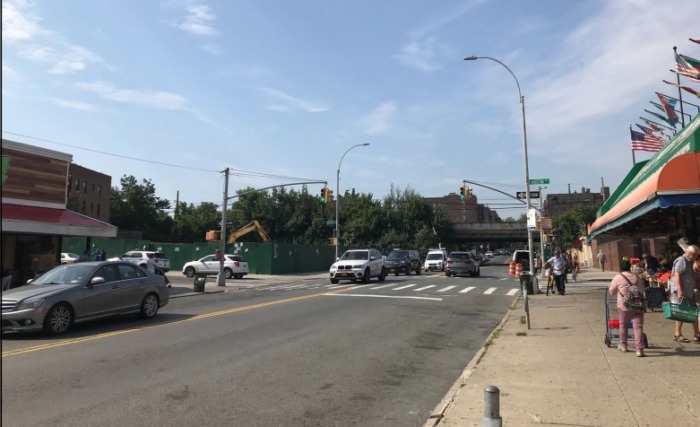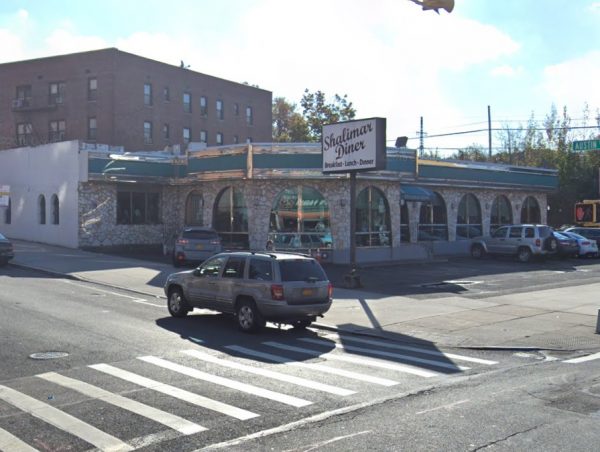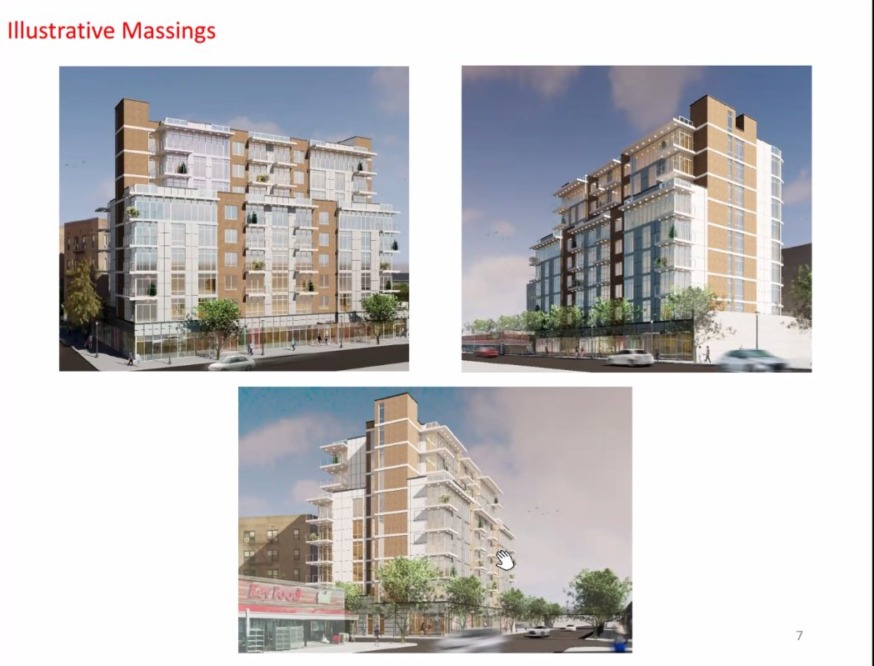
A nine-story mixed use development is planned where Shalimar Diner was once located (DCP).
Nov. 24, 2020 By Christian Murray
A Queens developer who seeks to rezone a Rego Park site in order to build a nine-story, 74-unit building got the approval of Community Board 6 earlier this month.
The board by a vote of 34 to 5 approved the rezoning application submitted by Forest Hills developer David Koptiev, who plans to build the nine-story project on the south east corner of 63rd Drive and Austin Street where the Shalimar Diner was located.
The proposal includes 24 ‘affordable units’ designated for seniors. Sixteen of the units would be for seniors earning up to 60 percent of the Area Median Income, with the remaining affordable units set at 80 percent AMI.
The plan has the backing of Council Member Karen Koslowitz whose representative Michael Cohen spoke during the board meeting.
“Council woman Karen Koslowitz supports this project,” Cohen said, adding that she is a strong advocate for the construction of senior affordable housing.
“This is a top priority for her and this is why she is supporting the project,” Cohen added.
The site, which has an official address of 91-32 63rd Dr., is currently located in a R4 zoning district—with a C2-2 commercial overlay—which typically allows for a three-story mixed use building, according to City Planning documents.
Koptiev, the owner of the Forest Hills-based company Platinum Realty, requires a zoning change to a R7A district with a C2-3 commercial overlay in order to move forward with the 9-story plan.
The development would consist of 74-units—comprised of 21 studios, 30 one-bedroom units and 23 two-bedroom units–which would be located on floors 2 through 9.
The ground floor would be for retail use and there will be 45 parking spaces.

Photo: Queens Post
The plan received the backing of CB6’s Land Use Committee by a vote of 10-4, with one abstention, prior to the full board vote.
Prameet Kumar, the vice president of CB6’s Land Use committee, said that the committee approved the plan but was concerned that the income levels for the senior units were too high.
The developer originally submitted a plan where the affordable units would be for seniors earning up to 80 percent of the Area Median Income in accordance with the city’s Mandatory Inclusionary Housing program. For a couple, 80 percent of household income is $72,800 per year.
Peter Beadle, a board member who sits on the Land Use Committee, said the AMI was based on the New York City region and that the median income of residents in Rego Park is less. He voted against the project in the committee arguing that the income threshold should be less.
Following the committee meeting, the developer agreed to set aside 16 of the 24 units at 60 percent of the AMI. For a couple, 60 percent equates to a household income of $54,600. At the full board meeting, Beadle voted in support of the project noting the developer’s change.
The size of the affordable units will vary and the developer plans to build seven studios, ten 1-bedrooms and seven 2-bedrooms.
The rent on a one bedroom for households earning up to 60 percent of the AMI would be $1,143 per month and for a two bedroom $1,366, according to Lauren George, a land use consultant with Constantinople & Vallone, citing U.S. Housing and Urban Development guidelines.
George said the units meet a need and that many 2 bedroom apartments in the area rent for up to $3,000 per month.
Cohen said that Koslowitz is likely to advocate for a reduction in the number of 2-bedroom units—in order to free up additional space so additional affordable units can be offered.
A lottery will be held for eligible applications to determine who gets a unit.
Frank St. Jacques, an attorney with Akerman LLP representing the developer, said that there will be a 50 percent preference for residents within Community Board 6, which covers Rego Park and Forest Hills.
Some members of the board argued that the development would add to traffic congestion and would also lead to gentrification. They also expressed concern about overdevelopment.
The application will now go to the Queens Borough President’s office for another advisory opinion, before going to the City Planning Commission and then the city council for a binding vote.
The plan is likely to be approved since Koslowitz supports it. It is customary for the council to vote according to the wishes of the representative where the zoning change is proposed.
Koptiev aims to complete the project in 2022, according to City Planning filings.

Source: DCP





